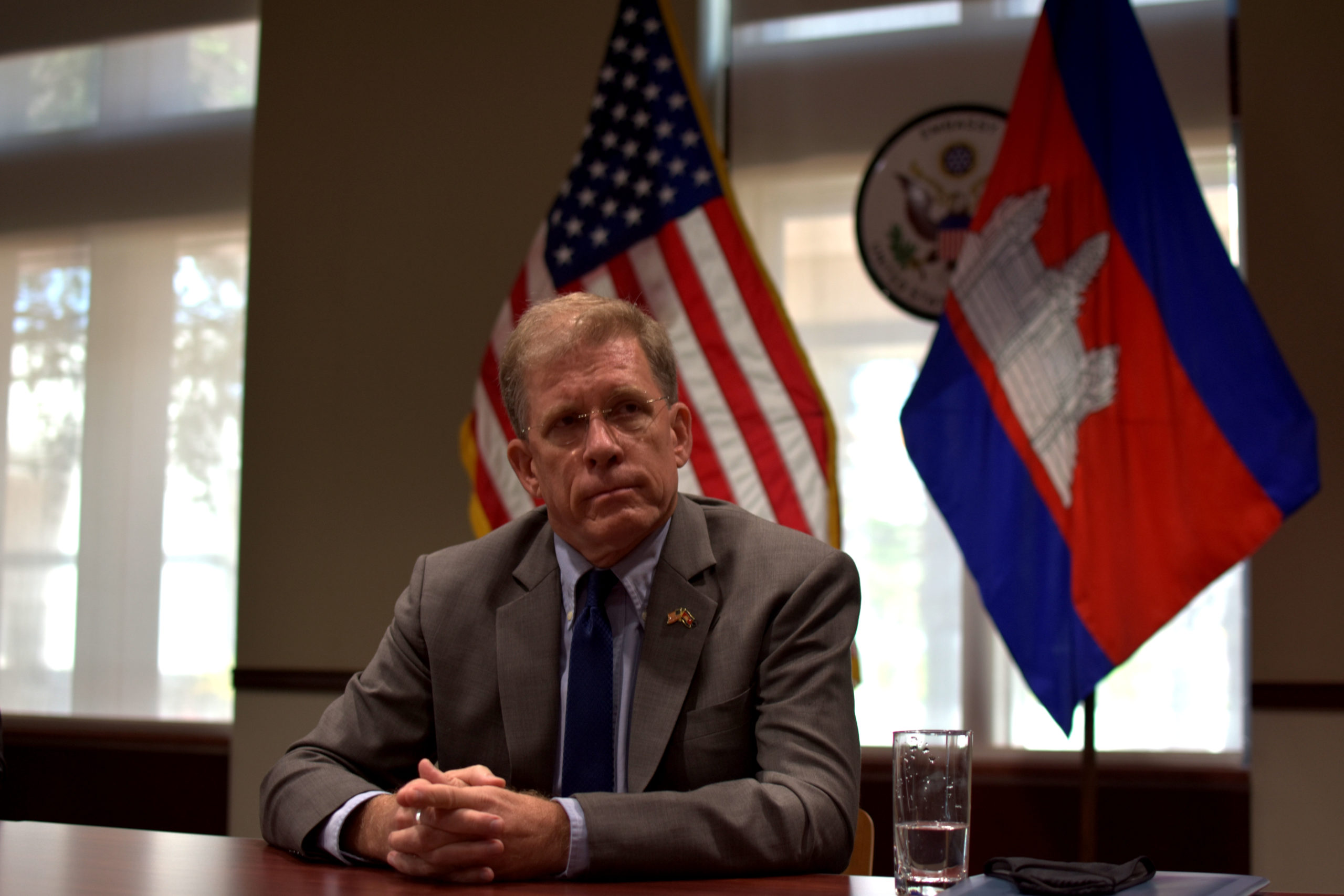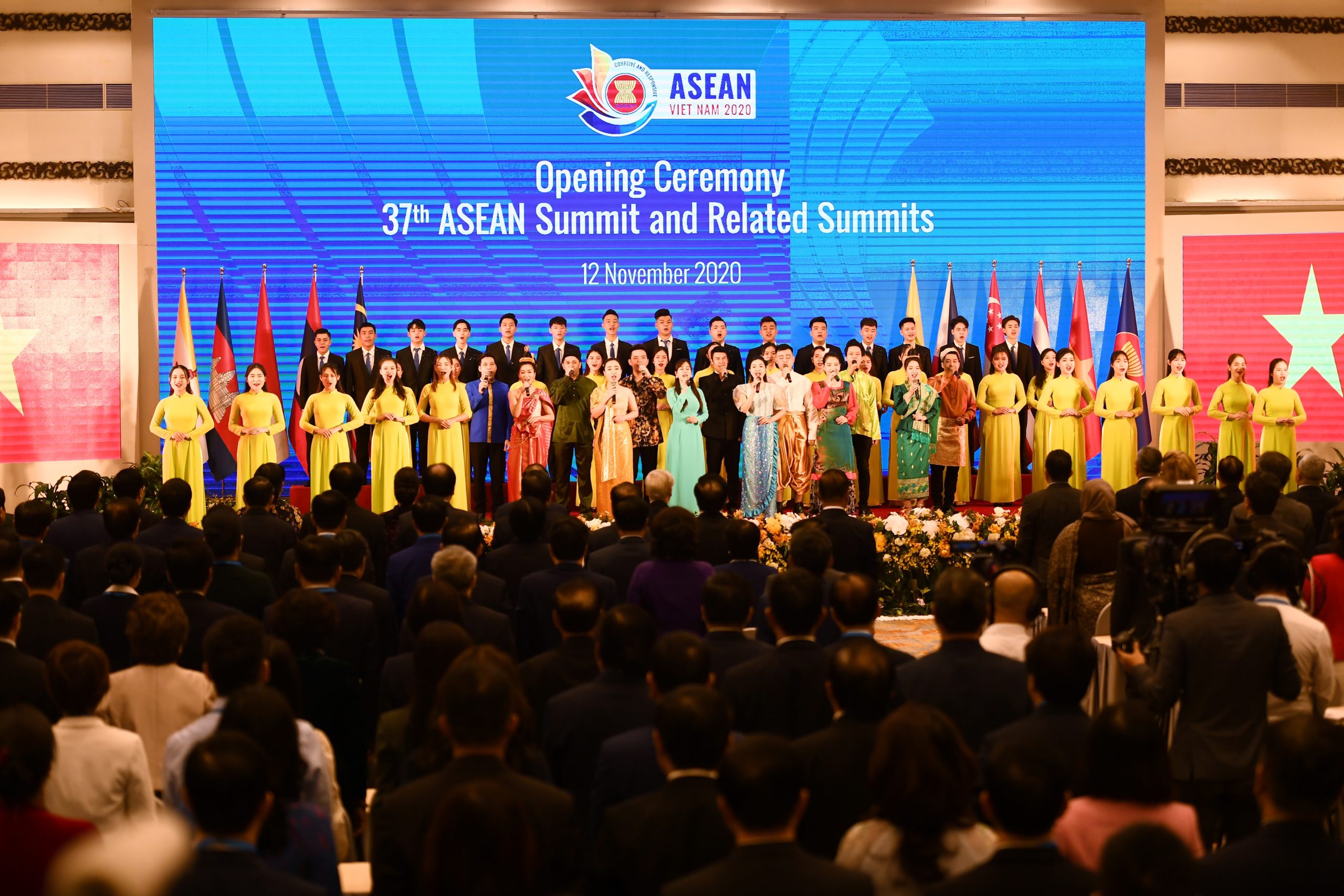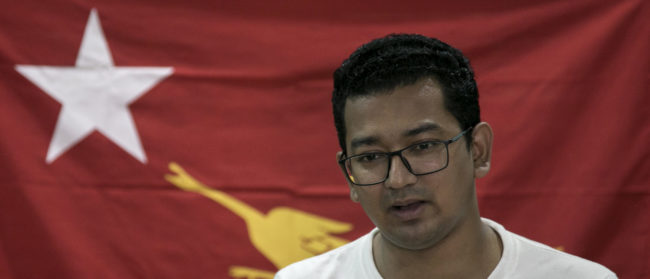Watching and waiting: What’s to come under Biden for Southeast Asia?
While the US election result remains officially undeclared, the Democrats look to have won the race. Since 2016, the Trump administration's stance towards Southeast Asia has been erratic at best – what could the next four years look like under Biden?

Additional reporting by Borin Vuthtey
Editor’s note: Since publication, the Chinese government has issued an official congratulations and recognition of Joseph R. Biden as the US president-elect. This article has been updated accordingly.
As the world watched the US elections, so now do many await the transition to whatever comes after President Donald Trump.
Not everywhere though. While ASEAN nations including Singapore, Indonesia, Malaysia and Thailand have recognised former Vice President Joseph R. Biden as the next leader of the US, Cambodia has yet to see the election as a done deal. Cambodian government spokesman Phay Siphan told the Globe this week that the country was waiting to see how court challenges driven by Trump in the past week would reach their end.
“Cambodia is a very small country, so we do not want to be involved much in this election [drama],” said Siphan.
Cambodia isn’t alone in holding off on a congratulatory memo. Historic US adversaries China and Russia too bided their time, with an official recognition coming 13 November from China, nearly a week after observers in the US called the election for Biden. Comment from Russia, whose leader Vladimir Putin was seen as comfortable with Trump, is still outstanding. For Cambodia, though the relationship between the Kingdom and the US is often fraught with tensions about governance and, now, an increasing coziness with China, Trump himself won an endorsement from Prime Minister Hun Sen in 2016 and has kept a loose correspondence since then.
Siphan said the Cambodian government considers the US to be a friend, pointing to a recent letter sent by the Trump administration marking the Kingdom’s Independence Day, and thus wanted to “not say anything to hurt” its relations there. Speaking from Phnom Penh, he described the outcome of the election in similar strokes as the Trump camp back across the Pacific.
“Joe Biden, the Democrat, is seeking support from other countries, his party did not wait for the court decision,” Siphan said. “Biden is now running a campaign to seek support from powerhouse countries. But, we see that Russia and China are not on the list. Only US allies such as Germany are seen starting to congratulate the Biden administration. The result is not an official result yet, and the court is responsible for announcing the official result.”
The mechanics of a US presidential election aren’t always clear to those outside the country, and though the federal court system is often used to clarify procedural points of an election, it does not announce the final result of the contest, which usually ends with the projected loser conceding to their opponent. This year, even 10 days after the election, votes are still being counted and may be recounted yet, leaving room for ambiguity in which the Trump campaign is now operating.
Amidst strong projections of a loss, Trump himself has turned to social media to allege widespread fraud and vote manipulation without providing much in the way of evidence. The president has also publicly ruled out a concession, for now. Election officials have reported no significant irregularities in the 3 November contest and several prominent members of the Republican party, including former President George W. Bush, have publicly congratulated Biden as president-elect.
But as this last-ditch scramble unfolds, Trump’s critics say he hasn’t just exercised his right to fight for a fair count. By running hard on unfounded claims of a stolen election, attacking the integrity of the electoral process itself, he may be sowing lasting public distrust.
Ear Sophal, a Cambodian-American political commentator and associate professor of diplomacy at Occidental College in the US, said Trump’s rhetoric about a stolen election “sends a bad message to fledgling democracies” like those in Southeast Asia.
“You can trample on democratic norms and get away with it,” Sophal wrote in an email to the Globe, “It’s demoralising and precedent setting. It’s embarrassing.”
Others still found something to celebrate. Or, at least, to look to as a bright spot.
In an interview with the Globe at the US embassy in Phnom Penh this week, Ambassador Patrick Murphy said that despite a “contentious … emotional election year” the transparency of the US’ electoral system was worthy of mention.
“In one sense, there’s an electoral process that needs to come to completion, but I’ve heard from people congratulations to the US on the process,” said Murphy, himself a Trump appointee.

The ambasador didn’t comment directly on the potential messages sent by Trump’s allegations of fraud but said Southeast Asia itself is “not immune from colourful leaders and rhetoric”.
“I don’t think any country has the monopoly on that,” Murphy said. “At the end of the day, whatever you can observe and say about the US, the good bad, some of the warts, it’s transparent and in accordance with rule of law. It’s helped us through challenging electoral processes in the past.”
Even as the domestic battle for the White House continues, many international observers have already settled on Biden as the likely successor. Beyond ASEAN, national leaders who once courted Trump’s favour, such as India’s Narendra Modi and Israel’s Benjamin Netanyahu, have also welcomed Biden to the national leaders club.
Outside the US, speculation has shifted to the priorities of a Biden administration that would be looking to quickly change tone from the more adversarial, deal-cutting approach of Trump. Some look warily to that possible change, particularly Asian leaders who cheered the president’s tough and vocal stance on checking the expansion of an ascendant China.
That would include the authorities in Vietnam, who join Cambodia in staying mum while the votes settle in the US Electoral College. Vietnamese at home, along with their American cousins, tended to prefer Trump over Biden, with some polling conducted by domestic media outlets suggesting lopsided support for the incumbent. This pro-Trump trend was also seen in places like Taiwan and Hong Kong – in essence, any place with a keen interest in reigning in Beijing’s authority.
Since 2016, the Trump administration has been vocal in its critique of the Chinese Communist Party and President Xi Xingping, waging a markets-rocking trade war since 2018. They have also looked to Southeast Asia as a regional bulwark against growing Chinese influence. In a recent visit, US Secretary of State Mike Pompeo pledged his government’s support to Indonesian and Vietnamese leaders in maintaining internal sovereignty, pointing specifically to longstanding territorial disputes in the South China Sea that have seen Beijing pitted against Southeast Asian states.
Dismantling those facilities was done unilaterally without any consultation or notification to the US has potential to erode confidence that any partner has with the Cambodian Armed Forces
But while Trump’s public rebukes of Beijing have won him fans in some quarters, his administration’s apparent indifference to Southeast Asia beyond superpower dynamics has pushed many away. This growing schism was apparent last November at the 35th ASEAN summit in Bangkok, when officials from Thailand, Laos and Vietnam were the only ones to attend a summit with US National Security Advisor Robert O’Brien. The snub was largely interpreted as a tit-for-tat move, with President Trump failing to appear at the annual meetings for the second year running, with O’Brien representing the US’ lowest level representation since 2011.
This reality of lukewarm US-ASEAN ties is not lost on Ambassador Murphy, with his host country Cambodia representing a cautionary tale of sorts for many about Beijing’s expanding sphere of influence in the region. A day prior to Murphy’s interview with the Globe, it was reported that a second US-funded facility on the Ream Naval Base had been destroyed amid rumours that Chinese forces are being hosted on the base. The first was pulled down last month, a move widely seen as symbolic of Cambodia’s growing disregard for US sentiment as its alliance with China grows.
Murphy said the demolitions were “quite disappointing”, describing the buildings themselves as “an investment of over $3 million made over the past seven years in response to a Cambodian military-identified need” to improve security capacity at the base.
“In fact, it puts me in a challenging position to explain [it] to the US taxpayers,” he said. “Dismantling those facilities was done unilaterally without any consultation or notification to the US … That has potential to erode confidence that any partner has with the Cambodian Armed Forces in a relationship.”
But, with a diplomat’s optimism, Murphy found encouraging signs in other regional developments spurred by Trump’s outgoing State Department.
Last month, the State Department overhauled its Lower Mekong Initiative (LMI) – a multi-state partnership of Mekong River countries Laos, Cambodia, Thailand, Myanmar and Vietnam – to expand under a new programme known as the Mekong-US Partnership. Murphy said the new framework includes an additional $150 million in funding for development projects across the five Mekong member states, an injection of money on top of what Murphy estimated as $1 billion previously spent through the LMI.
“It’s a partnership, not a traditional donor-recipient relationship,” the ambassador said. “Countries come together to set out priorities, framework, concepts structure, it’s done by consensus.”
The new structure would aim for tighter cooperation between the US and member states, as well as the Mekong River Commission, a more technically focused regional body initially founded in 1957 with the UN. It remains to be seen how the US-backed framework would work with China’s own regional mechanism, the Mekong-Lancang Cooperation, but Murphy said there could be opportunities for collaboration.

Beyond that, he didn’t much speculate on any policy shifts under a Biden administration, though he cited his 30-year resume in the diplomatic field while making a broad assessment.
“I’ve seen a lot of consistency from one administration to the next,” Murphy said. “We have our perennial interest here, as a Pacific nation by writ of geography, trade and immigration.”
Sophal also believed that this kind of regional approach, including support for ASEAN as a unifying framework, would likely continue regardless of who held the White House. Still, in terms of competing with China, he believed any increase in resources, namely money, would fall short of that offered by Beijing.
“China’s trillion-dollar Belt and Road Initiative (BRI) will still represent far more money than anything the US has to offer in answer,” Sophal said.
Beyond Belt and Road, just this week the Chinese-led Regional Comprehensive Economic Partnership (RCEP) was signed at the 37th ASEAN Summit in Hanoi. The world’s largest trade pact in terms of GDP, looping in ten Southeast Asia economies, the RCEP replaces the Trans-Pacific Partnership aborted by the Trump administration in 2017, and is regarded as a mechanism through which China can draft the rules of Asia-Pacific trade.
But for Sophal, should the Biden administration choose to reverse the pattern of withdrawal seen under Trump, it might find warm welcome in the region. Pulling his focus specifically to Cambodia, Sophal reasoned that Biden’s more traditional embrace and projection of US liberal norms would find a ready audience among residents of the Kingdom, but perhaps not its leadership.
“For the people of Cambodia, a Biden administration will offer more hope from an ideological and soft power standpoint than Trump’s messaging,” he predicted. “Trump has been about blocking China while using democracy for convenience. This is not entirely credible. Of course, Hun Sen [and his supporters] won’t like Biden’s messaging and there’s no getting them out of China’s BRI trough.”

